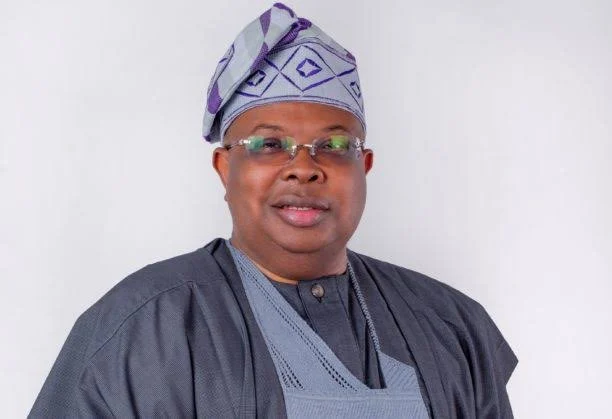The Director-General of the Nigeria-China Strategic Partnership , Mr. Joseph Tegbe, recently met with the Minister of State for Industry, Trade, and Investment, Senator John Enoh, in Abuja to align on key priorities aimed at repositioning Nigeria’s economy through the mining and automotive sectors. The meeting focused on actionable strategies to unlock the industrial potential of these sectors under President Bola Ahmed Tinubu’s Renewed Hope Agenda , with the overarching goal of transitioning Nigeria from an import-dependent economy to a production and export-led industrial powerhouse.
During the meeting, Senator Enoh reaffirmed the Federal Government’s commitment to three priority sectors: sugar, cotton-textile-garment, and automobiles , as outlined in a statement. Each sector is supported by active industry councils tasked with driving localized production, stimulating domestic demand, and enhancing Nigeria’s global industrial competitiveness.
Central to this economic shift is the Nigeria First Policy , a landmark presidential directive mandating all Ministries, Departments, and Agencies (MDAs) to prioritize Nigerian-made goods and services in public procurement. This policy is already reshaping supply chains, creating jobs, and reducing overreliance on imports across key sectors.
Tegbe emphasized the Nigeria-China Strategic Partnership’s commitment to supporting this transformation, positioning Nigeria as a strategic development partner for China rather than merely a consumption-driven economy. He cited Brazil’s $94.41 billion export performance to China in 2024 as evidence of Nigeria’s potential to achieve similar milestones by focusing on high-impact sectors such as agriculture, solid minerals, and industrial manufacturing .
Related News
- EU flags Nigeria, others for intellectual property rights violations
- AGF recounts $11bn P&ID scam victory
- GIZ drives renewable energy transition in Nigeria
Highlighting the vast potential of the mining sector, Tegbe pointed to over 40 commercially viable minerals as critical enablers of industrial growth. He stressed the need to move beyond raw mineral exports and focus on local beneficiation, processing, and refining capacity. This agenda is being supported by regulatory reforms and investment incentives aimed at fostering sustainable growth.
The Industrial Revolution Working Groups , a flagship initiative of the Presidential Council on Industrial Revitalisation, are already operational, addressing regulatory bottlenecks, improving access to infrastructure and financing, and unlocking sustainable growth across the mining value chain.
In parallel, the automotive sector is receiving significant government attention, with policies designed to position Nigeria as a regional hub for vehicle assembly and full-scale manufacturing. The Nigeria First Policy has begun to stimulate demand for domestically assembled vehicles while boosting investor confidence in the sector.
There is also a strong commitment to implementing a structured national automotive policy aimed at advancing from basic vehicle assembly to advanced manufacturing that integrates local supply chains and supports the transition to electric and energy-efficient mobility.
Follow us on Instagram.
https://www.instagram.com/businessnewsng?igsh=ZXpweTdjOGF1ZXdu

























